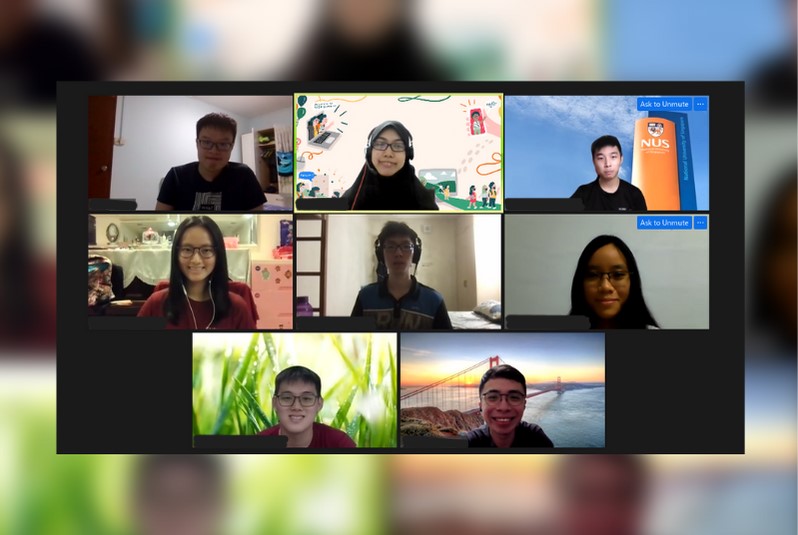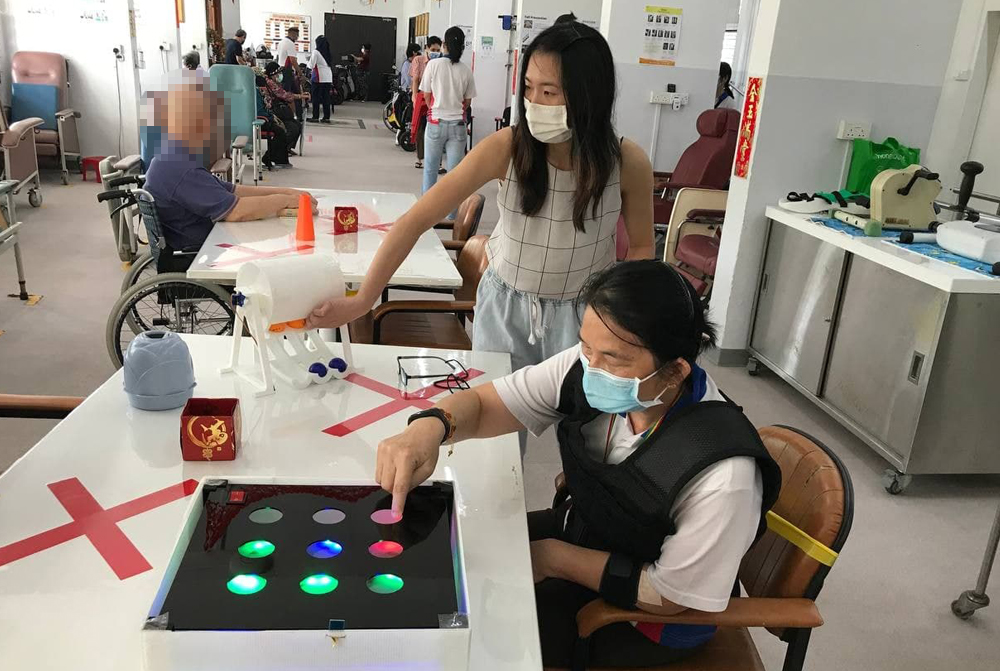Group members from Project Smartphone and Me, a project under the Seeds of Good Programme (SOGP), used their strengths to benefit the society. During the four-week project, they taught seniors over Zoom, basic functions and applications found in their smartphones. Some of these applications included WhatsApp, YouTube, QR code scanners, and toggling phone settings. The team also imparted knowledge on how to use Zoom – an application of growing importance amid the ongoing COVID-19 pandemic.
During the course of the project, while they learnt about how to interact with the elderlies, members also gained a deeper understanding and appreciation on different ways of working through their interaction with team members of different cultural backgrounds. The team comprised eight members, of which half of them are international students. They found their SOGP journey to be very fulfilling and even shared a few tips on how they managed the robust team dynamics.
Assets beyond cultural backgrounds
“Our group cooperated well after we divided our responsibilities. We didn’t really saw one another as ‘local’ or ‘international’ students,” Jerome Teo (Year 3, Faculty of Engineering, Programmes IC) commented. He further emphasised that rather than seeing a person for who he is based on where he come from, the team believed that everyone has his own assets and strengths to contribute to the project.
Jerome explained: “If someone is good with people relations, they can help to liaise with our community partner. We identified our members’ strength and mapped them to the requirements of the project, in this way, he can better contribute [to the project].”
“The moment you start segregating the group into ‘local’ or ‘international’ student, you set yourself up for a losing battle. You create an invisible barrier between you and the other member,” said Michael Peters (Year 3, Faculty of Engineering, Logistics IC).
When asked about how they have put their individual assets to good use, Michael noted that some of the best Mandarin speakers in the group are the international students.
The “no barriers” working principles that the group agreed upon were being put to practice when Jerome recalled how he struggled with the translation of the learning materials from English to Mandarin. He rallied the help of his international friends who are more competent with languages with the translations

Time out from work
Community engagement isn’t just all about work. The successful completion of the project would not be possible without the intentional effort by the team to bond with one another.
Before the COVID-19 restrictions, the team managed to spend some time to get to know one another better. Having meals with the team allowed them to have talk casually and freely to learn about one another’s cultures and experiences.
The team emphasised the importance of these meet-up sessions which allowed them to take a break away from work. These informal bonding sessions allowed them to understand each other better. When disagreements arose, the team could resolve them with more maturity and effective communication.
Jerome added: “We had the chance to meet up and get to know one another better on a more personal level. I think that really helped us to see each other not in terms of where we are from but rather, seeing him or her as just another youth like me who is studying in NUS and would like to contribute towards society in this way or interest.”
Team leader Ryan Lee (Year 3, Faculty of Science) concluded by mentioning the importance of working with people of different cultural backgrounds as this would help them build important soft skills when they enter the work force upon graduation.
When asked if they team found the journey meaningful, they concluded that they are eager to meet one another physically and have another catch-up session when the COVID-19 restrictions are eased.
Share:
Contributor
Community Engagement





